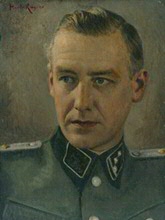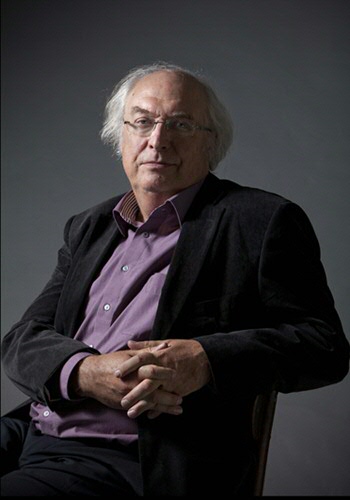Camp commander Gemmeker lived in fear of new trial for years

He was the friendly face of Nazi evil: Albert Gemmeker, commander of Westerbork transit camp. Known as a decent commander, who kept insisting that he never knew what happened to the Jews in camps such as Auschwitz, he got away with a mild sentence but remained the subject of a judicial investigation in Germany for many years after. Journalist and television producer Ad van Liempt has written a biography of Gemmeker, including numerous critical notes about the post-war German investigation. Van Liempt will gain his PhD degree from the University of Groningen on 9 May.
Short sentence
After serving his sentence in the Netherlands, former camp commander Gemmeker returned to his native city of Düsseldorf a free man as early as 1951. This was strikingly fast. ‘Gemmeker’s punishment was relatively mild because he had made a good impression, insisted that he was unaware of the extermination camps and because, as a native German, he had been exposed to Nazi indoctrination for years,’ Van Liempt explains.
Fear of a new trial
In Germany, Gemmeker spent 31 more years in freedom. Nevertheless, since 1959, the German judiciary spent 17 years investigating his complicity in the mass murder of 80,000 Jews who had been deported to the extermination camps under his authority. He lived in fear of a new trial for many years. ‘His fear has been our greatest consolation’, one of Gemmeker’s daughters confesses to Van Liempt. Gemmeker always maintained that he did not know the fate that awaited the Jews. Van Liempt cannot provide a definite answer to whether he did or did not know: ‘While my research contains strong indications to the contrary, it doesn’t offer absolute proof.’
Not persecuted
In 1976, the final decision was made not to persecute him. Van Liempt includes a lot of critical notes regarding the German investigation, however. It is remarkable, for example, that the former investigating judge, who had questioned Gemmeker 12 times, admitted to Van Liempt that he felt that the former commander should have been tried. However, he had no influence on the public prosecutor’s decision not to persecute.

Cold man
Although some believed Gemmeker to be a decent commander, Van Liempt shreds that reputation in his biography: ‘He had people deported for not taking their cap off for him, or in reprisal for the attempted escape of one of their barrack mates. He was cold and merciless, obedient to his superiors to the absurd, and he had no misgivings about deporting the sick and the handicapped to the camps in cattle wagons.
Deceitful
As part of his research, the author also spoke with two of Gemmeker’s daughters and one granddaughter. Although they never spent much time with Gemmeker because he divorced their mother early on, they do challenge his credibility, says Van Liempt. ‘Gemmeker made deceitful statements on all sorts of occasions: he maintained, for example, that he had never had anything to do with anti-Jewish operations during his Gestapo days in Düsseldorf, which is impossible according to insiders. He also concealed his past as a camp commander when he was looking to be ‘denazified’ after his release. When a document surfaced about a meeting between him and and his superiors in the presence of the logistical architect of the murdering of the Jews, Adolf Eichmann, he bluntly denied ever having attended.
Curriculum Vitae
Among other activities, Ad van Liempt has worked as deputy chief of the internal affairs desk at the NOS Journaal (daily news) and editor-in-chief of current affairs programme NOS Laat. He was also co-initiator of the Andere Tijden and Andere Tijden Sport television programmes, as well as editor-in-chief of TV documentary series De Oorlog. Van Liempt won the Zilveren Nipkowschijf (Silver Nipkow Disk) award for his entire television work. In his book Kopgeld (Bounty Hunters), he describes how Dutch police officers traced and betrayed Jews for a bounty in 1943.
More information
- Gemmeker. Commandant van kamp Westerbork is published commercially by Uitgeverij Balans publishers.
- On 4 May at 9 p.m., the NOS will broadcast a documentary entitled ‘Albert Gemmeker, commandant van kamp Westerbork’ (Albert Gemmeker, commander of Westerbork transit camp).
- Please contact Eva Schaap at Uitgeverij Balans publishers for more information or interview requests.
More news
-
14 February 2026
Tumor gone, but where are the words?
-
19 January 2026
Digitization can leave disadvantaged citizens in the lurch
